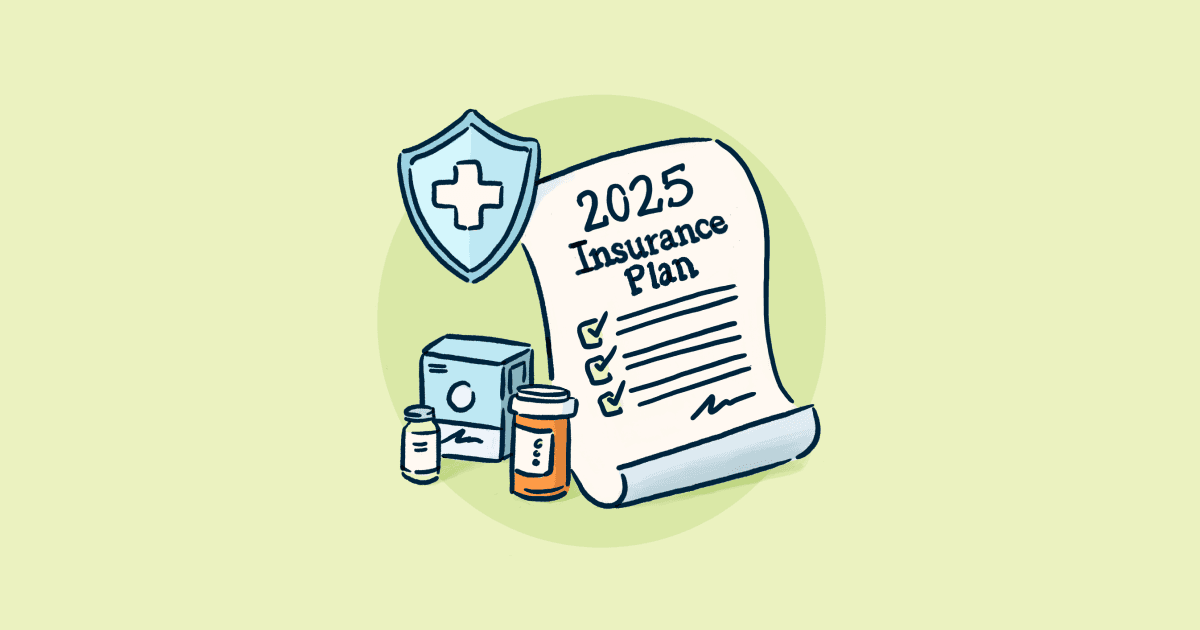In making treatment recommendations, a provider may prescribe a medication for another purpose than its FDA-approved use. This is called “off-label” medication use, a widely used practice that accounts for 1 in 5 of all prescriptions written in the US.
Although taking a medication off-label is common, it comes with additional safety considerations. To help you make informed decisions about treatment options, we’ve compiled answers to common questions about off-label medication use.
What is off-label use of a medication?
Every prescription medication in the US has been approved by the Food and Drug Administration (FDA) in a specific dosage form for a specific therapeutic use. Off-label medication use is when an FDA-approved medication is prescribed differently from how it was approved. The term is perhaps most often associated with taking a medication for a condition it hasn’t been approved to treat, but it could also mean:
Taking a medication at a different dose than what the FDA has approved
Taking a medication that has been approved for a different age group, such as a child taking a medication that is only FDA-approved for adults
What are some reasons a medication would be prescribed off-label?
An off-label medication is typically prescribed when other effective treatment options aren’t available, or as an alternative after first exploring approved options.
Pediatric care often includes off-label medication. In fact, one study found that 78% of children discharged from a pediatric hospital were prescribed at least one off-label medication. The prevalence of off-label medication use in this area of medicine is because the majority of medications in the US are only FDA-approved for adults. As a result, many widely used medications, including some antibiotics, antidepressants, and gastrointestinal medications, are off-label for younger groups.
Off-label use of medication is also common in cancer treatment, as many cancer medications are effective at treating more than one type of cancer. Since chemotherapy treatments often combine several medications, it isn’t uncommon for a treatment to include one or more off-label medications.
Some off-label medications are eventually approved for their secondary use.
What medications are frequently prescribed off-label?
Since the practice of off-label medication use is relatively common, there are medications frequently prescribed off-label in many areas of medicine. Here are a few examples.
Beta-blockers: Although first FDA-approved to treat high blood pressure, beta-blockers are also effective at treating heart failure. Some medications from this class are even considered a first-line treatment for heart failure and have since received FDA approval to treat the condition.
Tricyclic antidepressants: One of the first types of antidepressants, this medication class is also an effective treatment for chronic pain. While it isn’t entirely understood how tricyclic antidepressants relieve physical discomfort, some evidence suggests that they may increase spinal cord neurotransmitters that control pain.
Metformin: The most common oral medication for type 2 diabetes, metformin is also an off-label treatment for polycystic ovary syndrome (PCOS), a complex hormonal condition that often involves insulin resistance.
Are there any risks associated with off-label medication use?
Off-label prescribing can be beneficial to a person’s health, in many instances allowing for the most effective treatment option. At the same time, any treatment approach has a balance of risks and benefits, and in the case of off-label medications specifically, there are some safety considerations to keep in mind.
The FDA’s rigorous approval process evaluates a medication’s safety and effectiveness for its intended use. This means that the possibility of side effects and interactions may not have been studied in individuals taking a medication off-label. Additionally, if you are taking a medication off-label, its safety and long-term health effects may not have been considered for people with your diagnosis.
Before prescribing an off-label medication, your healthcare provider should be informed of your full health history. It’s also important that they’re aware of any medications you take, both prescription and over-the-counter.
What to ask your provider
If your provider is considering adding an off-label medication to your treatment plan, here are some questions you may want to ask:
Are there FDA-approved medications for my condition?
What research or evidence supports the use of this off-label medication for my condition?
Given my health history, am I more likely to benefit from taking an off-label medication than an approved option?
Are off-label medications covered by insurance?
Insurance coverage of off-label medications varies by plan. In some cases, an insurance provider may cover an off-label medication with documentation that other approved treatments have been ineffective. If you are considering taking an off-label medication at the recommendation of your provider, contact your insurance company to confirm coverage details before starting treatment.
Questions about your medication? Ask away!
As your pharmacy partner, we’re here to give you all the information you need to feel confident taking your medication. If you have questions about off-label medication use, side effects, interactions, or anything else related to your treatment, reach out through in-app messaging.
This content is not intended to be a substitute for professional medical advice, diagnosis, or treatment. Always seek the advice of your physician or another qualified health provider with any questions you may have regarding a medical condition.

















